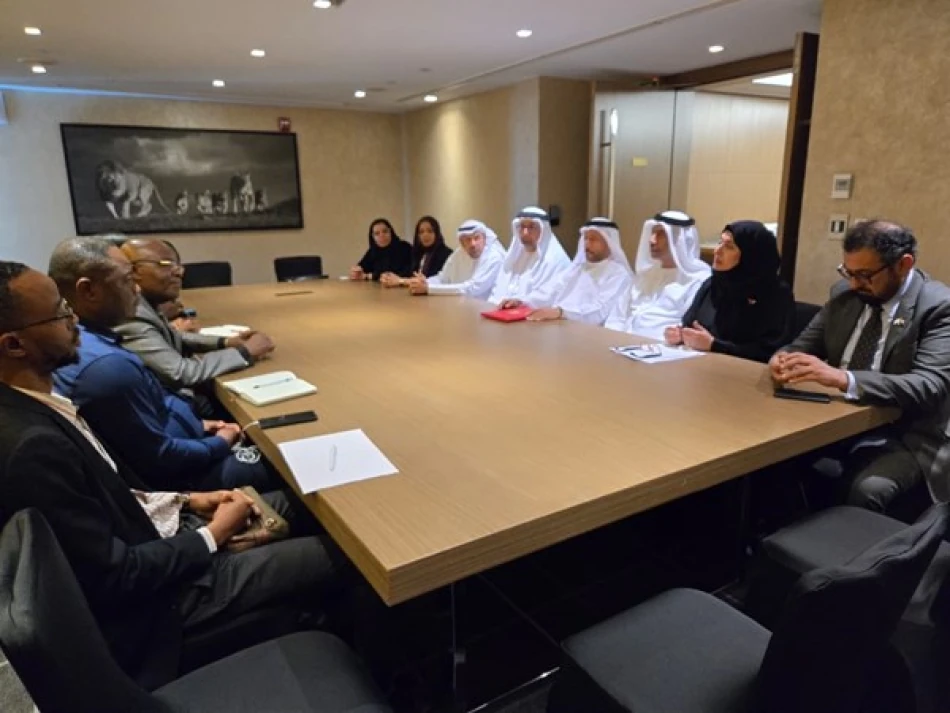
UAE Chambers Sign MoU to Establish Emirati-Angolan Business Council
UAE and Angola Launch Joint Business Council to Unlock Investment Opportunities in Resource-Rich African Market
The UAE Federation of Chambers of Commerce has signed a strategic memorandum of understanding with Angola's Chamber of Commerce to establish the "UAE-Angola Business Council," marking a significant expansion of Emirati commercial interests into one of Africa's most resource-abundant economies. This move positions the UAE to capitalize on Angola's vast oil reserves and mining potential while offering Angolan businesses access to Dubai's global trading hub.
Strategic Partnership Takes Shape in Luanda
The agreement was formalized during a high-level UAE economic delegation visit to Angola's capital, Luanda. Abdullah Sultan Al Owais, Vice President of the UAE Federation of Chambers and Chairman of Sharjah Chamber of Commerce, signed alongside Vicente Soares, President of Angola's Chamber of Commerce and Industry, with senior officials and business representatives from both nations in attendance.
The timing of this partnership reflects the UAE's broader African expansion strategy, following similar successful business councils established with Nigeria, Kenya, and South Africa over the past decade. These initiatives have generated billions in bilateral trade and positioned Dubai as Africa's primary gateway to Asian markets.
Economic Rationale Behind the Alliance
Angola's Untapped Potential
Angola represents a compelling opportunity for UAE investors. As Africa's second-largest oil producer and home to significant diamond deposits, the country has been working to diversify its economy beyond petroleum exports. The nation's reconstruction efforts following decades of civil war have created substantial infrastructure and development needs that align perfectly with UAE expertise in construction, logistics, and financial services.
UAE's African Ambitions
This council fits within the UAE's systematic approach to expanding its influence across emerging markets. Unlike traditional Western investors who often focus solely on resource extraction, the UAE model emphasizes comprehensive economic partnerships that include trade facilitation, infrastructure development, and knowledge transfer.
Operational Framework and Market Impact
The business council will operate as a permanent platform for commercial engagement, organizing trade missions, exhibitions, and conferences while providing market intelligence and regulatory guidance to businesses from both countries. Al Owais emphasized that the council will work systematically to launch promotional activities across targeted economic sectors, creating sustainable partnerships and opening new cooperation channels.
For investors and traders, this development signals several key opportunities. UAE companies gain preferential access to Angola's emerging markets in agriculture, manufacturing, and services, while Angolan businesses can leverage Dubai's established trade routes to reach Asian consumers. The council's focus on information sharing about investment opportunities and regulatory frameworks should reduce market entry barriers significantly.
Broader Implications for Regional Trade
This partnership mirrors successful UAE strategies deployed in Southeast Asia and Latin America, where business councils have facilitated billions in trade flows. The Angola agreement could serve as a template for similar arrangements with other Portuguese-speaking African nations like Mozambique and Cape Verde, potentially creating a UAE-Lusophone Africa economic corridor.
The Angolan side praised the council as essential for translating mutual interest into tangible projects, suggesting strong government backing for UAE investment initiatives. This political support, combined with Angola's membership in regional trade blocs like the Southern African Development Community, could provide UAE businesses with broader continental market access.
As global supply chains continue reshaping post-pandemic, the UAE's proactive engagement with resource-rich African economies positions it advantageously for the next phase of South-South economic cooperation, while offering Angola a non-traditional development partner with proven expertise in economic diversification.
Most Viewed News

 Layla Al Mansoori
Layla Al Mansoori






